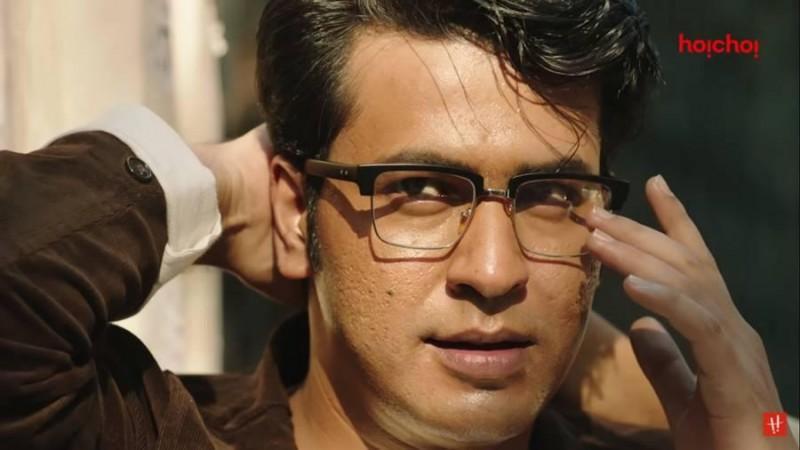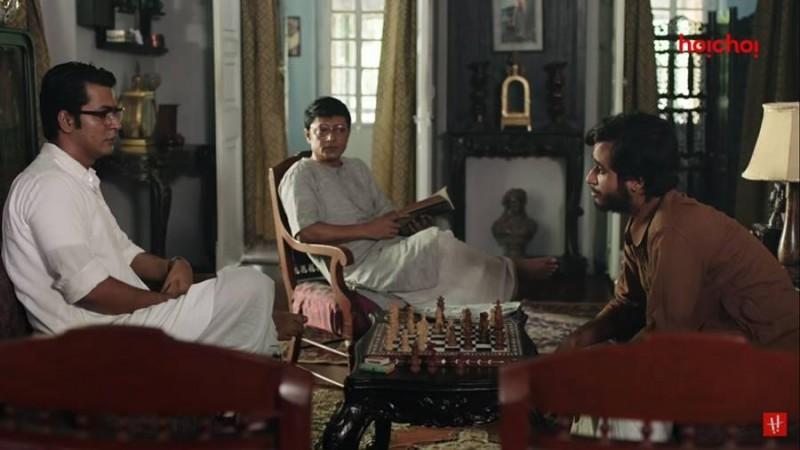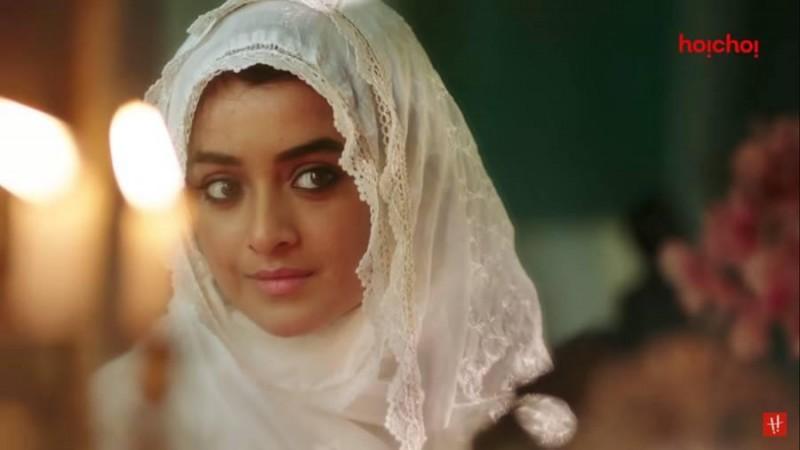The sixth season of Hoichoi's Byomkesh is set in the year of partition when India as a nation was going through a traumatising phase of watching their large country divided into three parts, East Pakistan, West Pakistan and India. Henna Mallick, a spy from then East Pakistan, (now known as Bangladesh) arrived at Santosh Samaddar's residence. The mystery in the plot begins when Henna is suddenly found dead in the garden. While everyone tries to pass it off as an act of suicide, Byomkesh Bakshi is convinced that there is more to this death than it meets the eyes. It took director Soumik Halder as many as three long episodes to complete his narration.

Byomkesh- The star detective of Bengal
What Mirzapur is to Amazon, Sacred Games is to Netflix, Game of Thrones is to Hotstar, Byomkesh is to Hoichoi. Each season of this show has been a huge hit since its launch. Byomkesh happens to be the only Hoichoi web-series which has as many as six seasons. The thrill which was explained and explored in the works of Sharadindu Bandyopadhyay's text was hardly found in any of the visual adaptations of Byomkesh. But the screenplay arrived with a lot of balance.
Although, the pain of the partition wasn't visually depicted it was felt when Byomkesh Bakshi screamed at Santosh Samaddar and explained how the division of the nation into three parts on the basis of religion was never a good idea in the first place, and this division would come back to haunt us time and again. Even in contemporary times, when you read the news online, newspaper, radio or watch anchors explain their biased version on television, you understand what Byomkesh meant in 1947, and how it's still relevant today.

The tales of Byomkesh Bakshi are stitched in a manner that it doesn't just appear as a black and white story. The victim does not gain higher grounds for being murdered, neither does the perpetrator is immediately branded to be the villain. Byomkesh Bakshi, who calls himself 'Satyaneshi' (seeker of truth) only investigates to understand the psychology, motive behind a murder.
Death does not result in heroism
Henna Mullick, who was at the receiving end of the murder in the latest season, did not become a hero of the story for her gender or circumstances. Rather, director Soumik Halder's usage of keeping Henna, as the conniving, blackmailer, was well written. Over the years, men have been the organisers of crime, but here Henna Mullick became a villain to the point where she had managed to blackmail her enemy to the point that he also had to provide her security and shelter.

Henna, who was a spy of East Pakistan, literally (and geographically) crossed her limits inside the household which gave her shelter. She was a villain when she was alive and remained so even after a solved case, and closed case of her death.
Performance
Actors Anirban Bhattacharya, Ridhima Ghosh and Suprobhat Das were reserved for their roles as Byomkesh Bakshi, Ajit and Satyabati, and while they have consistently played their part with brilliance and conviction, it was Debshankar Halder who managed to shock us all. The actor, who comes with a lot of theatre training, seemed to be immersed in his character as the rich influencer Santosh Samadder.
But it was Ujjan Chatterjee as Nengti who was the real show-stealer. His quirky smile, tactics of taking the bribe from both parties, and delivery of dialogue added real comedy even in the middle of suspense. Even Byomkesh who was initially too lackadaisical to play the moral police, and offered the young boy cigarettes and allowed him to smoke in his presence, became livid at the very end when he came to know about his tactics. It has hardly happened earlier, but Byomkesh truly ended on a comic note.
Ratings: 3.5 stars


!['Had denied Housefull franchise as they wanted me to wear a bikini': Tia Bajpai on turning down bold scripts [Exclusive] 'Had denied Housefull franchise as they wanted me to wear a bikini': Tia Bajpai on turning down bold scripts [Exclusive]](https://data1.ibtimes.co.in/en/full/806605/had-denied-housefull-franchise-they-wanted-me-wear-bikini-tia-bajpai-turning-down-bold.png?w=220&h=135&l=50&t=40)











!['Had denied Housefull franchise as they wanted me to wear a bikini': Tia Bajpai on turning down bold scripts [Exclusive]](https://data1.ibtimes.co.in/en/full/806605/had-denied-housefull-franchise-they-wanted-me-wear-bikini-tia-bajpai-turning-down-bold.png?w=220&h=135)


![Nayanthara and Dhanush ignore each other as they attend wedding amid feud over Nayanthara's Netflix documentary row [Watch]](https://data1.ibtimes.co.in/en/full/806599/nayanthara-dhanush-ignore-each-other-they-attend-wedding-amid-feud-over-nayantharas-netflix.jpg?w=220&h=135)